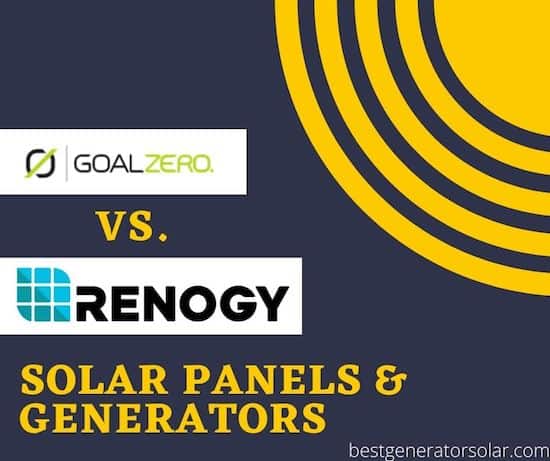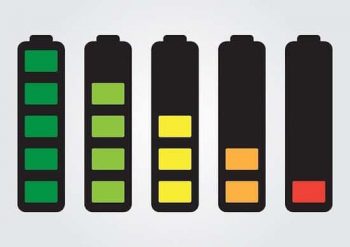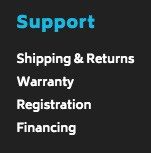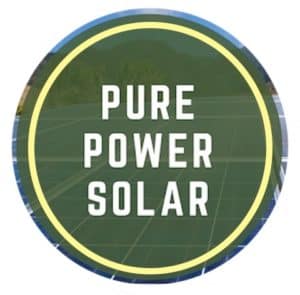The popularity and prevalence of solar energy have led to an increase in the number of participants in the industry.
We are now witnessing new manufacturers, and engineering companies spring up almost every day. These companies all come with their peculiar products ranging from solar panels to solar generators and other solar power kits.
This article will focus on two popular manufacturers in the industry, comparing their products and services. Goal Zero’s main product is the solar generator, but they also have solar panels to go along with their generators.
Renogy creates several components for off-grid solar systems, such as solar panel kits, inverters, batteries, charge controllers, and more. Renogy only has about four different solar generators total, whereas Goal Zero has at least 15 different solar generators available for purchase.
Goal Zero’s products are very easy to use because they don’t require much assembly. If you buy a solar generator and solar panel, all you would need to do is plug the solar panel into the generator and it will begin charging easily.
Renogy has the same capabilities that Goal Zero has in terms of easy assembly amongst solar generators and panels, but because they have very few solar generators to choose from, this only is true for their generators and panels.
Renogy sells mostly solar panel kits, which are different than solar panels and solar generators because they can include solar panels, charge controllers, batteries, mounts, wires, and more for a complete setup.
While this allows for more customization, it is also more complex and requires more direction than someone using Goal Zero products.
For this comparison, we will be comparing solar panels and solar generators specifically. This means that solar kits are out of the equation.
Goal Zero beats Renogy overall when comparing solar panels and generators because it has several desirable options in each category.

Renogy (vs. Goal Zero) solar panels:
- Cost less
- Longer warranty
- Equal quality
Goal Zero (vs. Renogy) solar generators:
- More power
- Higher solar inputs
- Wider selection
Goal Zero and Renogy are two renowned participants in the solar energy industry with a wide range of product offerings. Their products are known for their quality and reliable functionality.
This review of the two companies will discuss their solar panels, solar generators, and customer service. Using these three categories as yardsticks, we will see which of the two companies have maintained their A-list status over the years.
Solar Panels
Solar panels are the main components of the solar generator system. Thus, it is logical to expect that leading names in the solar energy industry will have quality and reliable solar panels to cater to their customers’ needs and other solar power enthusiasts.
In this section, we will compare the different solar panel offerings of each company. Let’s dive right into it.
Goal Zero
Being a leader in the industry comes with a certain responsibility, including manufacturing quality products for a very long time.
The ability to maintain your products’ quality regardless of the type and variant of the products makes you a leader in any industry. This is what Goal Zero has achieved with its solar panel offerings.
Goal Zero has two styles of solar panels; the Boulder series, which consists of mountable solar panels, and the Nomad series, which are for portable use.
Nomad and Boulder Series
There are some differences in the two styles of solar panels offered by Goal Zero.
The Nomad solar panels are lightweight and foldable.
These types of solar panels are portable and easy to use on the go.
They come with features that allow for easy use, such as a kickstand feature with a zippered pocket.
You can also use the Nomad solar panels to power your gadgets by plugging your gadgets directly to the solar panel.
On the other hand, the Boulder models have a more rugged design with a strong tempered glass surface.
The Boulder solar panels are not portable and are best used for permanent or temporary installation.
These types of solar panels are best used for homes, cabins, RVs, and other vehicles and cannot be used to power gadgets directly.
Rather, they are connected to power stations that are used to store energy and distribute for later use.
Due to its portability and other features, the Nomad panels are a bit more expensive than the Boulder panels.
The rugged look, heavy size, and dependence on power stations make the Boulder panels relatively cheaper.
Goal Zero Portable and Mountable Solar Panels
The portable solar panels offered by Goal Zero include:
Nomad
Boulder
All of these solar panels are built for outdoor use. While some (Boulder brands) may be heavy and not very portable, they are useful for outdoor camping as they can be fixed temporarily to a spot.
Others, such as the Nomad 50 and Nomad 100, are suitable for mobile use, as they can be used on the go.
The mountable solar panels from Goal Zero represent the solar panels that are best suited for the permanent installations due to their size and other features. The solar panels that you will find under this category include:
- Boulder 50 Solar Panel
- Boulder 100 Solar panel
There are no surprises here, as we already know from the previous explanations that the Boulder brands are best suited for mounting and permanent installations.
Similar: 3 Stages of Camping Solar Panels from Goal Zero
Renogy
In a similar fashion to that of other leading names in the industry, Renogy has three different models of solar panels.
These brands include Rigid panels, Flexible Panels, and Folding Solar Panels. These brands have different features and characteristics that make them unique.
Rigid Panels
This class of panels is one of the most common in the industry. The solar panel is made of photovoltaic cells, which may be monocrystalline or polycrystalline.
These cells are covered with a layer of tempered glass, which serves as the cells’ protective layer. Aluminum frames are then used at the edges of the solar panel to strengthen it.
Rigid solar panels are very durable and strong. Compared to the Boulder brand from Goal Zero, Renogy’s Rigid Panels compete favorably.
What’s more, the capacity of the Rigid panels ranges from 30 watts to about 320 watts. This is unlike the Boulder brand, which has its watts capacity from 50 watts to 200 watts.
You will also discover that the Renogy Rigid Panels can be used both as a mountable solar panel or a portable solar panel. This is because the size and weight of the panels vary greatly, making them suitable for different occasions.
Thus, the smaller capacity Rigid Panels are best suited for portable solar panels while the larger capacity is best used for mountable solar panels.
Folding Panels
As explained on the Renogy website, this solar panel class is suitable for cases where space is an issue. This implies that the Folding Solar Panels allow you to take advantage of your space by providing a folding mechanism to store the system when needed.
The Folding Solar Panels are made of the same composition as the Rigid Solar Panels. The major difference is that they are foldable.
Other differences include their wattage, which starts from 100 watts. The Folding Panels, because of their structure, are well suited as portable solar panels.
Flexible Panels
With this solar panel type, Renogy defies the conventional industry practice by manufacturing a flexible solar panel made out of plastic.
It is a huge deviation from the tempered glass and aluminum frame convention. Not only are these types of solar panels light and flexible, but they are also usable with curved surfaces.
While flexibility is a new and enticing feature, there is a downside to it. The flexible solar panels do not last as long as the conventional solar panels.
The reason for this is the manufacturing material used for the panel. Thus, Renogy has an impressive 5-year warranty on the Flexible Panels.
This concludes the solar panel options from both companies. As you could see, there are various areas of use for each style.
Solar Generators
Solar power stations are up-and-coming products in the solar energy industry as a whole. Built to allow users to store energy from different sources for later use, these power stations are very popular products that many solar energy enthusiasts have fallen in love with.
In this section, we will compare the solar generator offerings from both Goal Zero and Renogy.
Solar generators, also known as portable power stations, is Goal Zero’s “claim to fame” – And Renogy has gained widespread acclaim in the solar panel industry for their panels and solar panel kits.
Renogy also sells portable solar generators, but they only have four models as you’ll see below.
In the solar generator field, Goal Zero dominates Renogy without question.
Goal Zero vs. Renogy – Solar Generators
Goal Zero’s generators are called the YETI series. There are several power stations in this series of solar generators.

The following YETI models include the:
- YETI 150
- Yeti 400
- Yeti 400 Lithium
- Yeti 1000 Lithium
- Yeti 1400 Lithium
- Yeti 3000 Lithium
- Yeti 200X
- Yeti 500X
- Yeti 1000X
- Yeti 1500X
- Yeti 3000X
- Yeti 6000X
Most of these power stations are portable and suitable for outdoor use, but some are much better when used in the home.
On the other hand, Renogy is not very big on solar generators or power stations. This is because the company only has four different power stations for sale.

These include the:
While these power stations from Renogy are quality, its product line is small and may not serve a wide range of customers. This is because they do not offer many options from which customers can choose.
This is a major advantage on the side of Goal Zero, who has churned out several different power stations, giving buyers a lot of options to choose from.
Similar: Top 15 Best Solar Generators for Camping (Small to Large)
Power Station Capacity
Basically, the numerals in the name of power stations give an approximate indication of the number of watts packed inside its battery.
However, this is not enough information, in most cases, to find the exact amount of power the battery has. The output capacity of all solar-powered generators is given in the user manual.

Comparing the power stations’ output capacity, it is evident that the Goal Zero, by virtue of its product line, has a power station with the highest output capacity.
The smallest power station from Goal Zero, the Yeti 150, has 150Wh of power in its battery, while one of the largest generators, the YETI 3000X, gives users almost 3032Wh of electricity.
This output range is impressive and allows buyers and customers to enjoy hours of non-stop electricity, based on their preferred power stations.
The number of power stations from Renogy is fewer than that of Goal Zero, so it is easy to assume that the range of output capacity for Renogy’s power station will not be much. This assumption is not wrong.
While Goal Zero offers between 150Wh and 3032Wh of electricity, Renogy provides between 97Wh and 1075Wh of electricity. The difference between the offerings from the two companies is clear in terms of their power stations’ output capacity.
The following are the output capacity of the power stations from both manufacturers:
Goal Zero
- YETI 150 – 150Wh
- YETI 400 – 396Wh
- YETI 1000 Lithium – 1045Wh
- YETI 200X – 187Wh
- YETI 500X – 505Wh
- YETI 1500X – 1516Wh
- YETI 3000X – 3032Wh
Renogy
- Phoenix 100 Mini Power Station – 97Wh
- Phoenix 200 Power Station – 189Wh
- Phoenix 300 Power Station – 337Wh
- Lycan PowerBox – 1075Wh
Price

Price is another major determinant when comparing products.
While quality and reliability are important features, the products’ affordability is another important feature that buyers consider. Let us examine how these solar energy giants price their products.
Upon analysis and comparison, it is safe to say that the products’ pricing from the two companies is almost the same.
This similarity is seen when comparing the prices of products with similar or almost similar capacity.
The 1000 lithium power station and the Lycan PowerBox produce about 1000Wh of electricity, and they both cost about $1199, respectively.
However, this is where the similarities in prices end. When comparing other products, there is a marked disparity between the prices of these products.
Examples include the YETI 200X and the Phoenix 200 power station, which gives about 189Wh of electricity. While YETI 200X costs about 239 dollars, the Phoenix 200 costs about 199 dollars.
The same disparity goes for the YETI 400 and Phoenix 300 power stations.
Similar: Your Next Solar Generator – The Complete Guide
Customer Service

The customer service of a company may determine the success or doom of a company.
In this age of online business, customer service has become essential. This is because the internet has exposed most companies and businesses to the whole world.
Hence buyers and customers of the company may be miles away from the company and unable to visit a physical store or office of the company to make inquiries or complaints about an issue. The customer support system of the company determines how such customers are responded to.
Having understood the need for and the importance of customer service, let’s review the customer service of Goal Zero and Renogy.
Company’s Pedigree
Goal Zero is a well-known company in the industry with years of experience in churning out quality products and services.
Hence, it is expected that the company will also combine its excellent products with a top-notch customer support service. And they did not disappoint.
This leading status has made it imperative that the company provides an excellent customer support service, like its counterparts. Let us examine the setup of the customer support service of Renogy.
Customer Support Access
Goal Zero provides numerous ways for customers and buyers of their products to reach out to the company in case of any issue. The company provides an email address and a telephone line for customers to contact their representatives.
The telephone is actually the faster of the two channels, although it is a bit costly as expenses may be incurred through your network provider’s charges.
The email channel is also not bad, as you are likely to get a response within 48 hours.
Hence, if the issue you want to seek answers for is not urgent, you can easily send an email to [email protected].
However, if the issue is an urgent one, it is advisable to use the telephone line with the number 1-888-794-6250.

On the other hand, Renogy also follows the conventional routine of providing an email address and telephone number for customers to reach out to them in case of any issue or complaints.
According to the company, these customer support channels are always open for communication. While you can use the telephone lines during business hours, the email channel, [email protected], is available for use every hour of the day throughout the week.
While the response time for emails is not stated on the company’s website, reviews and comments from customers of the company indicate that the response time for emails takes very long.
The estimated response time ranges from a few days to a week before responding.
Due to this, it is advisable that urgent issues should be directed to the company’s telephone line, 1-909-287-7111.
Similar: The Jackery 240 – Solar Charger for the Outdoors
Website Support
Goal Zero allows buyers and customers to get some form of help when they log on to their website. This form of support is provided through the Frequently Asked Questions (FAQs) section on the website.
This section contains possible questions and inquiries that customers might need answers to, and suitable answers were provided to these questions.
The topics treated in the FAQs section includes the history of the company, shipping and delivery, general product questions, and specific product questions.
All of these questions were thoroughly treated with concise answers provided for each of the questions.
Apart from the FAQ section, there are other sections on the Goal Zero website’s support page. These sections were provided to guide customers through various product inquiries. Some of these sections include order tracking, warranty and returns, and product care.
Each of these sections provides detailed information on different topics. For instance, order tracking provides information on how buyers can keep track of the products their orders from Goal Zero.
Warranty and returns enlighten customers on the company’s warranty policy while Product Care provides information on the techniques of maintaining the different products manufactured by Goal Zero.
Barring any complaint about a product or other specific problems, you may not need to contact the customer support agents for any inquiry. The answer to most of the inquiries that you may have may be found on the website, either in the FAQ section or other sections.
This customer service system is an excellent one from Goal Zero and makes it one of the industry leaders with awesome customer support services.
Renogy follows the trend of other industry leaders by providing some form of support on their website. This means that buyers and customers can also obtain information about some of the company’s products and services.
This method is faster or cheaper than going through customer support channels.

The Renogy website has three different pages on the support section of the website, which is found at the footer of the site. These pages include Shipping and Returns, Warranty Registrations, and Financing. These pages provide information on various aspects of the company’s offerings.
The shipping and returns page allows buyers and customers to get information about the shipping procedures for the products bought on the company’s website.
The warranty registration page provides necessary details about the warranty policy of the company.
The financing page gives customers information about how they can get Renogy products and pay with different financing plans provided by a financial institution partnering with Renogy.
The only real downside to their customer service is the delayed response times to emails.
Social Media Platforms

Renogy also takes advantage of the prevalence of social media in connecting with its customers. The company uses popular social media platforms like Facebook, Instagram, YouTube, Pinterest, and Twitter.
Hence, you can make inquiries or resolve conflicts surrounding any of the company’s products through their social media platforms.
Apart from the email address and telephone line, you can also reach out to Goal Zero on social media.
The company allows you to connect with its representatives on popular social media platforms like Facebook, Twitter, Pinterest, Instagram, YouTube, and Tumblr.
Conclusion
Solar energy has become an important part of human lives, and as such, many companies have risen up to serve the teeming customers in the industry.
Amongst these numerous companies is Goal Zero and Renogy. These two companies have been known to see through the delivery of quality products and services in the industry for years.
In this article, the customer service and product offerings for these two companies were examined and compared. While these two are reputable companies, there are still some bit of discrepancies between their offerings. For instance, Goal Zero has more power stations for sale, while Renogy has more solar panels to offer.
If I had to choose between the two to decide on the better overall company in terms of customer service, solar generators, and solar panels, I would choose Goal Zero.
The reason why is because Goal Zero makes better solar generators than Renogy, but also makes quality solar panels.
Renogy makes better solar panels than Goal Zero, but Goal Zero still has enough differentiation to supply various solar panels to its customers.
Overall, Renogy does not have the same focus as Goal Zero, which is to create the best portable power stations in the market. Renogy is slightly different in that they are one of the best solar panel kit manufacturers in the market today.
This makes the competition in this article favored to Goal Zero from the start because this comparison does not include solar panel kits.
If we included solar panel kits into the equation, then it would be unfair to Goal Zero because they do not have any solar panel kits for sale.
Do you agree or disagree with Goal Zero being the winner of this comparison? Let me know your thoughts by leaving a comment below.
Continue Reading:
What Can a Solar Generator Power? (Charging, Capacity, and More)






